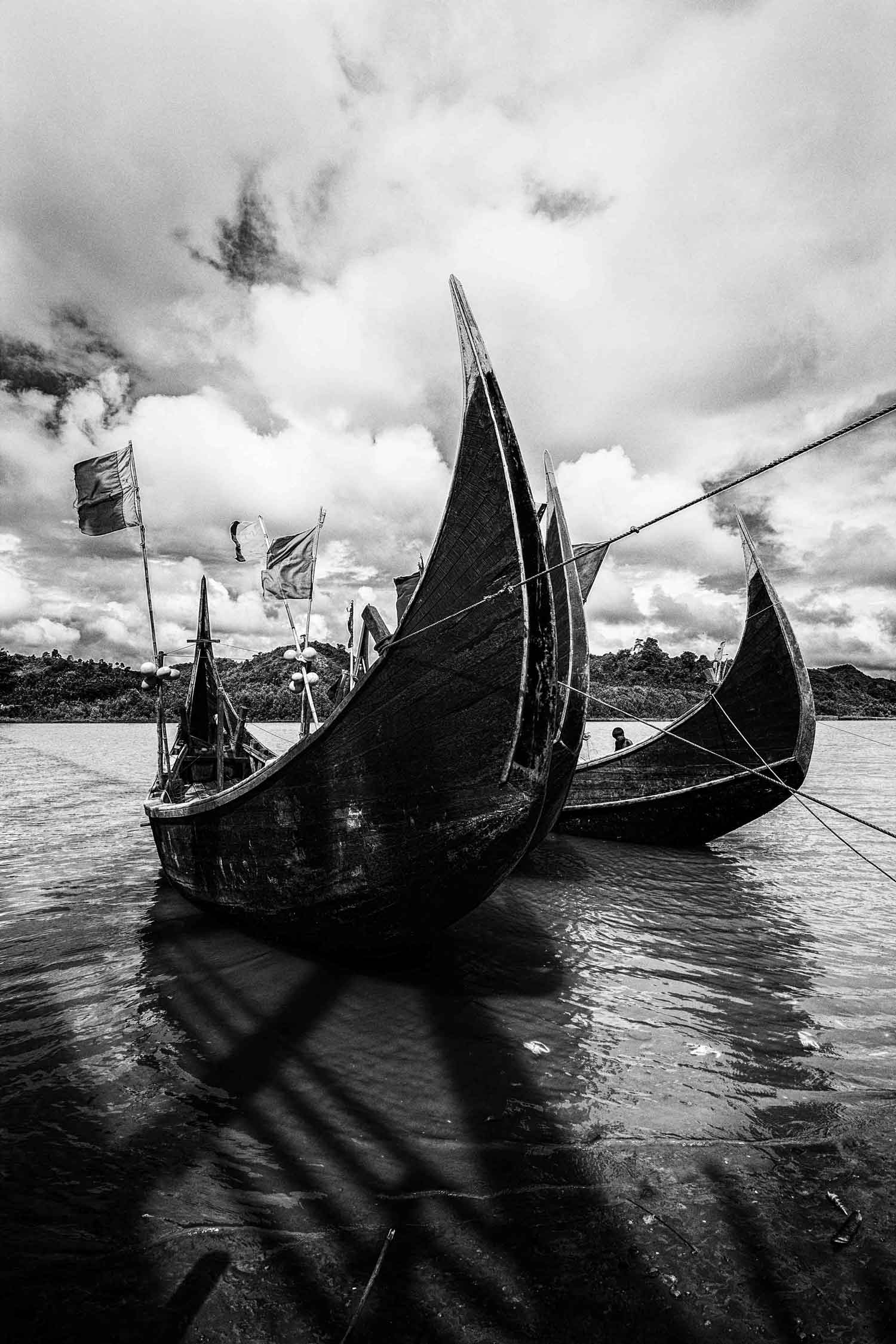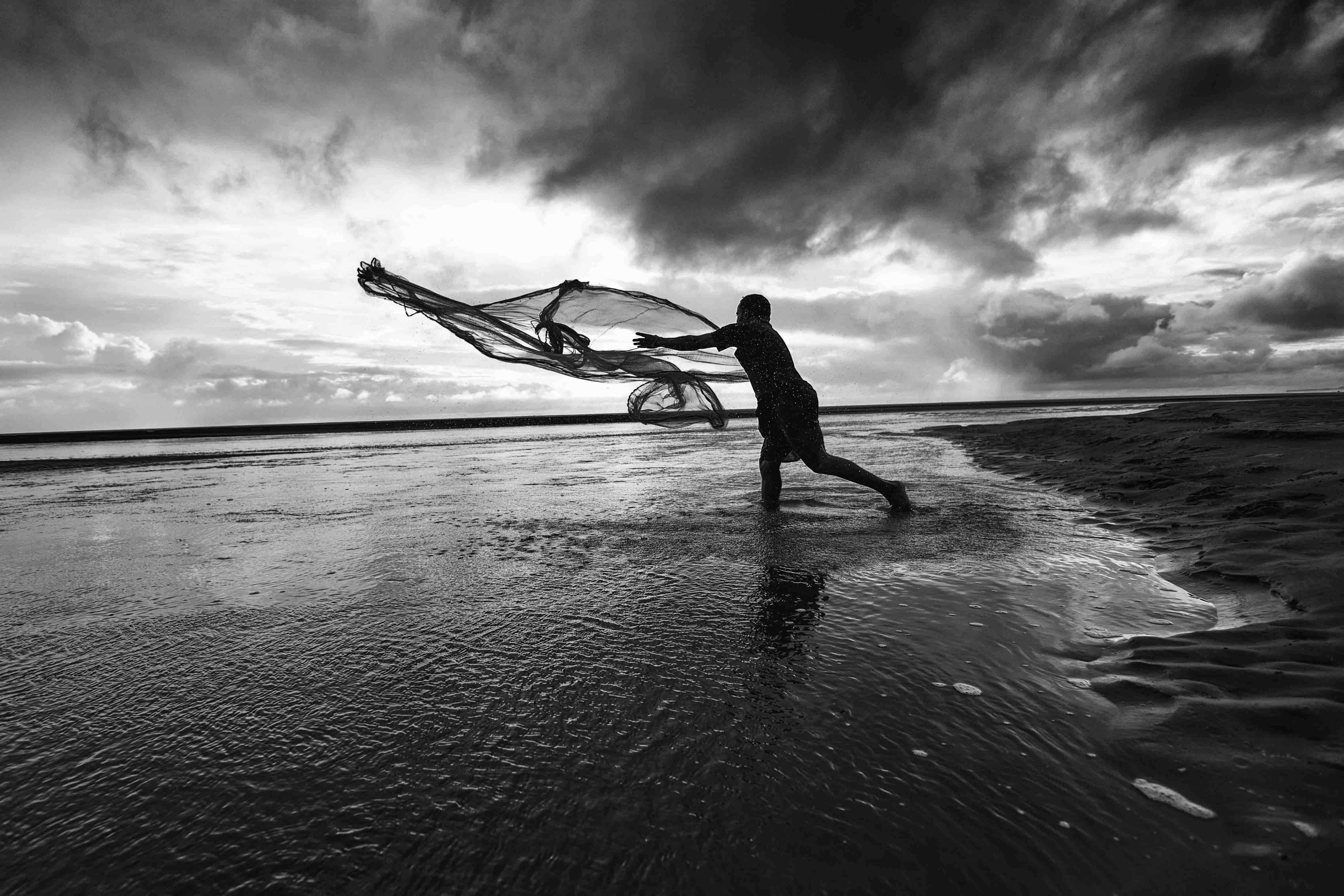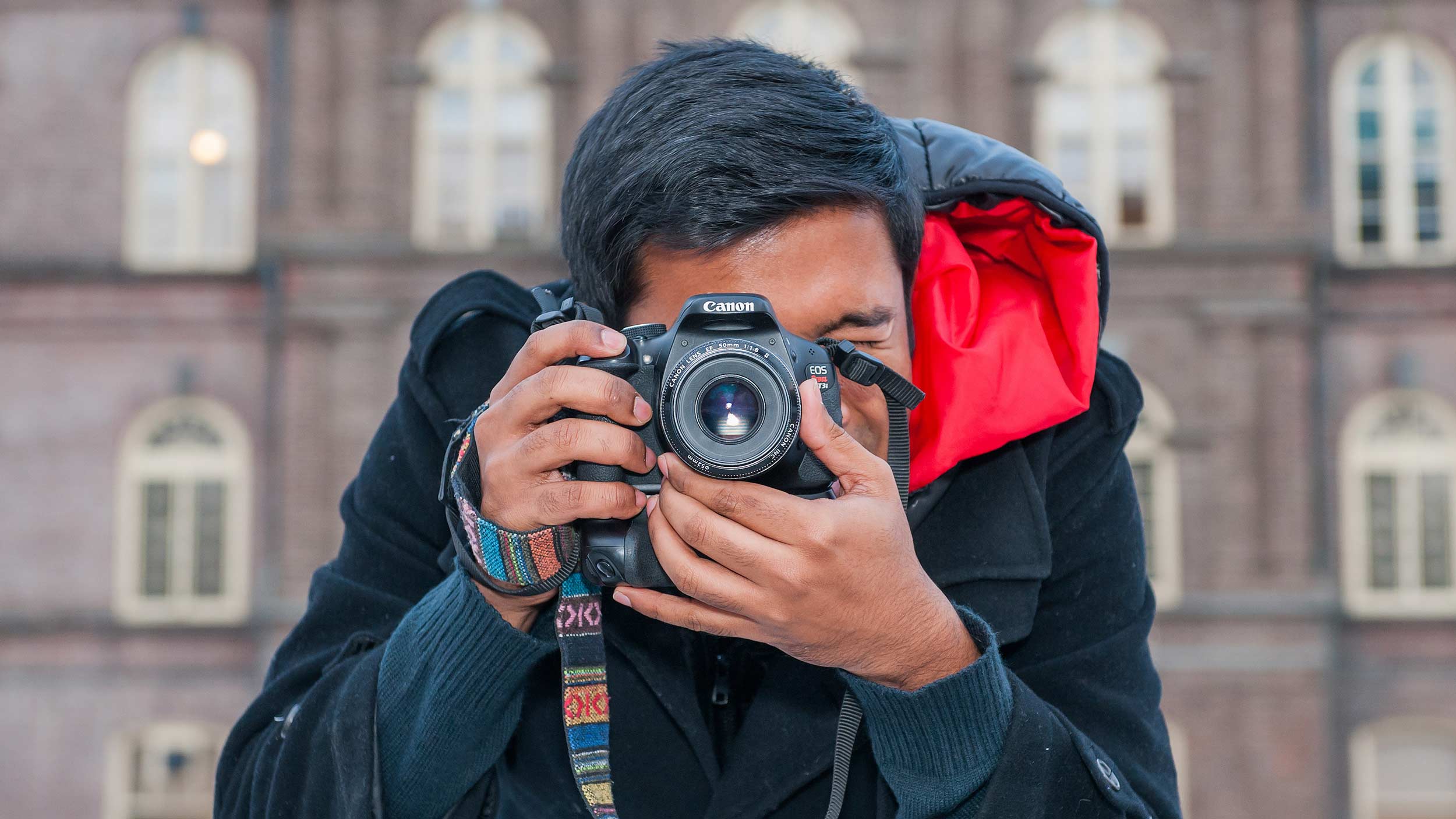Ever since he was a young boy, Imrul Islam ’17 had heard about the fishermen who cast their nets along the coast of his native Bangladesh. “I’d always known they were there,” he says, “but my knowledge was detached. I wanted to talk to them, to get to know them.”

Islam got his wish this summer. Using a grant from Vassar’s June Ross Marks Travel Fund, he made the five-hour trip—by bus, motor scooter and finally, on foot—from his home in the capital city of Dhaka to the coastal villages of Inani and Himchori. And while he listened to the fishermen’s stories, Islam photographed them for an entry in his blog entitled “Songs of the Sea.”
It was the same technique Islam had used for a blog he launched last year called “Superhumans of Vassar.” Throughout his freshman year, he approached students, faculty and staff around the campus. He’d snap their photos as he chatted with them and then post the portraits and excerpts from the conversations. “Most people don’t mind being photographed, especially if you’re talking to them and they feel comfortable with you,” Islam says.
Several of the fishermen on the Bangladesh coast told him stories about storms they had faced in their tiny boats far out at sea, Islam says, “so I decided not to go far with them – we stayed pretty close to the shore.”
What he learned about the fishermen’s daily lives—the dangers they face and the meager payments they receive (the equivalent of 25 American cents per crab or lobster) for their catch—left Islam both saddened and in awe of their courage and their stoicism. “They work harder, every day, than I have ever worked in my life,” he says. “They are aware that others make a lot more money re-selling their catch than they do, but I didn’t sense resentment. It’s more like resignation—this is how the world works.”
Islam says he hopes his photographs will give his friends in the United States some insight into the culture of his country, something he plans to continue: “I want my photographs to have context, to tell a story.”
His next project: chronicling the lives of Dhaka’s gay and lesbian community. “The people in the LGBTQ community are shunned—almost no one will hire them, so they live in their own small communities,” Islam says. “Growing up, I was not taught to hate them, but I was taught they were different, that they are outside the social structure.”

Islam once met a group of them several years ago during his sister’s wedding reception when they approached the festivities and asked for some money. Since then, he said, he has been thinking of a way to tell their story. He says he plans to speak to members and leaders of Vassar’s LGBTQ community over the next few months to seek their advice on how to proceed.
“I’ve sort of laid the foundation for how I would approach it, and I’m open to ideas and suggestions,” he says. “But until I go there and begin to talk and take photographs, I won’t know exactly what direction the project will take.”
